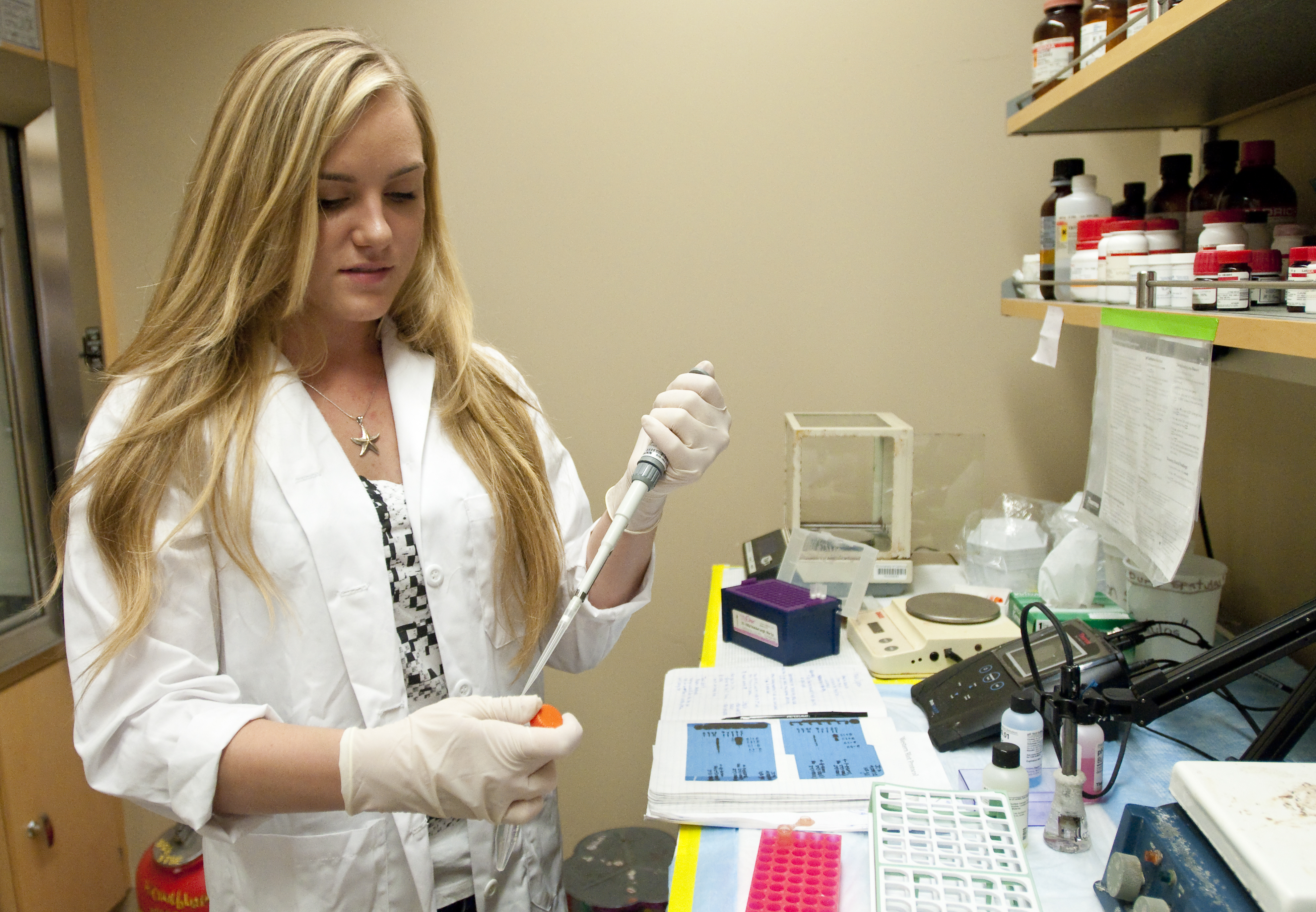C.U.R.E. club at UCLA helps students secure research lab positions

Julia Minasian, rising fourth-year neuroscience student
Julia Minasian holds a flask containing thousands of miniscule neural stem cells suspended in an amber liquid.
Carefully, she unscrews the cap of the flask with one hand so she can pipette eight milliliters of liquid into a tube that she will place into a centrifuge.
Minasian has been volunteering in a lab since winter quarter of last year, doing what she calls “hands-on” work with the lab’s researchers, preserving cell cultures and analyzing the effects of knocking out autism-related genes on cells.
Before Minasian got her lab position at a UCLA autism and cancer research lab, the fourth-year neuroscience student went through a two-month application process. At one point Minasian hit a wall ““ a disheartening interview with a researcher who sharply criticized her career prospects.
But through the support and consolation of a peer mentor, she was encouraged to keep up the search and eventually secure the job she was looking for. Minasian and her mentor were paired up through the Collaboration in Undergraduate Research Enrichment club at UCLA, a student group that helps students obtain lab positions at UCLA.
“It definitely would have been more difficult without (the club),” Minasian said. “(My mentor) helped me construct my emails and gave me pep talks.”
While there are other clubs or fraternities on campus that help students find work in labs, they only target specific fields, like engineering, said Alanna Chan, a third-year biology student and a coordinator for the club. This research club, which launched last spring, is open to students across disciplines, though it primarily comprises life science students.
Most students trying to find a lab position on their own can feel overwhelmed, said David Yao, a fourth-year neuroscience student who is a co-founder of the club and Minasian’s mentor.
“The process is actually very daunting (and most students) have a deer-in-the-headlights look (when they start),” Yao said.
Yao, who has worked in multiple labs, said he was disappointed by his first research experience. He wanted to help students get involved in a positive research experience and create a space where students could share their experiences working in different types of labs, he said.
C.U.R.E. partners students with peer mentors who closely guide them through the application process, offering advice on both finding a lab, writing emails to professors and creating a curriculum vitae, Yao said.
The advice is personal, and consists of casual email exchanges and meetings with the mentors, Minasian said.
Yao is one of 15 different coordinators, or mentors, in the student group. Each coordinator specializes in a certain field of research and helps his or her mentees get a lab position within their field. The club currently mentors 80 students, and two-thirds of the students have already obtained lab positions, Yao said.
Minasian said the club demystified her search. When she joined last fall, Minasian said her mentor, Yao, taught her to consider labs that fit her personality. She added that dissecting dense lab research descriptions is a challenge in itself, and her mentor helped with this process.
Through this one-on-one peer support the club brings together South Campus students.
“We all want to find a lab and be successful in it,” Minasian said.
Hiring undergraduates in labs is a big investment in time and resources for researchers, Yao said.
Neil Garg, an assistant professor in the department of chemistry and biochemistry, directs research in discovering new reactions to create organic molecules. For the three to four undergraduate research positions in his lab, he gets up to 10 email inquiries from students a quarter, he said.
“The problem is a supply-and-demand issue,” Garg said. “There are plenty of qualified applicants and I can’t take them all.”
Though Garg had not heard of C.U.R.E. before, he said many students have approached him about the challenge of finding research positions, so a club that aids students in finding positions is worthwhile.
Not all members of the club are able to land a position right away, however. Some students are still competing for a position or finding one that fits in their schedules.
Minasian though, said Yao’s personal mentorship helped her find a lab faster than she would have without his guidance.
Yao helped Minasian narrow down her interests, which eventually helped her find the hands-on position in the field of neurological disease treatment.
Examining a gene associated with autism in her lab, she was practicing a protein separation technique Thursday for her summer work.
Minasian and a research mentor watched intently over a gel medium that held the protein samples.
“I might have ended up in a lab that I wasn’t so happy with,” she said. “With this lab … it’s just a good fit.”


